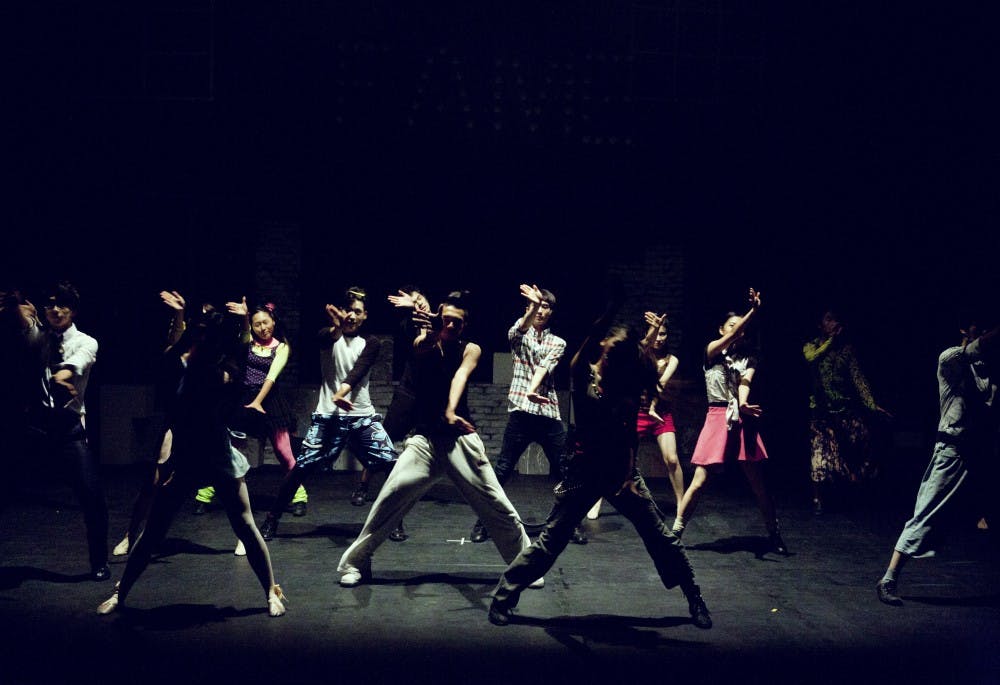Every week, new posters paper the bulletin boards and light posts. They advertise dance and improv shows, orchestra and glee club concerts. Performing arts groups across campus put on different plays, musicals, dances, and concerts each semester, with one show often overlapping with another.
For a student looking for weekend activity or entertainment, the number of events can feel overwhelming. However, they can also feel inspiring and incredible; the sheer diversity of talent across all artistic fields speaks to the creative potential of our student body. As I walk by bulletin boards, even when I’m late to class, I have often stopped when a promo poster caught my eye. Yet, recently, the first place my eyes go is not the date or description of the event: it’s the cost. The demand of students’ personal funds in order to attend student group performances hinders our creative community.
The student events ticketing system confused me from day one. I wasn’t sure how many free tickets I had as a first-year or which ones counted as “Student Events” or “Tiger Tickets.” I always found it odd that student groups had to ask for payment for their shows, but as long as I could use another free ticket, I didn’t worry too much. It was only a few weeks ago, when an attempt to get a free ticket for a friend’s dance show failed, that I realized I’d run out. I suddenly began to question the worth of the event: how much could or would I pay? Then I began to question: why aren’t all student group events free?
Currently, the ticketing policy is as follows: “Undergraduate students are given eight electronic vouchers to be used to access free tickets each academic year. Six vouchers can be used for select University sponsored events (e.g., Princeton University Orchestra, Lewis Center events, and PUC) and select McCarter events. Two vouchers can be used for student performing group events.” This policy severely limits students’ abilities to both promote and fully appreciate arts on campus in several troubling ways.
First, it alienates students who cannot afford to pay for events they would like to attend. With only two non-University sponsored event vouchers per year, lower-income students are inherently left out of most of the audiences. While the societal reality may be that most audiences of cultural and artistic performances tend to be wealthy, students at Princeton should not have to feel excluded from appreciating their peers’ talents. The costs also keep students from exploring new avenues and experiences; though costs ranging from five to 15 dollars may not seem like much, they can prove a barrier for students who cannot afford to spend that money on a show they don’t know will be worth it. Therefore, these students will tend to stick to art they are familiar with, leading to a lack of cultural and creative mixing in our community.
The costs do not solely inhibit the audiences of student-organized events. Performance groups themselves feel the pressure to increase turnout while depending on ticket revenue for future events. If Princeton sponsored a greater variety of groups, the need for external revenue would decrease. When potential audience members are forced to pick and choose the events they will attend for free, the tendency is to attend performances by groups they see as universally “popular” and “established.” Newer or perhaps more niche student organizations must overcome the cost barrier when convincing students to attend their shows, leading to a difficulty in changing the status quo of esteemed groups on campus.
In encouraging a truly open and vibrant creative environment on campus, the administration should subsidize student performing group events for all current students. At a place like Princeton, where we continue to explore different avenues and gain a variety of experiences, we should not be limited in appreciating the cultural work of our peers. I should not have to consider my ability to pay to see a friend in a show on which they worked for weeks.
The costs of supporting performance group events would not be small, but it is absolutely worth it to ensure equal access to art and culture. It is a matter of prioritization by the administration: all student athletic events are free, so why should artistic ones be any different? I only hope that Princeton can set an example of what can happen when artistic conversations are open to everyone — what level of creativity, talent, and support we can achieve.

Kate Lee is a first-year from Austin, Texas. She can be reached at k.lee@princeton.edu.









